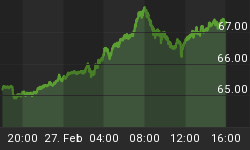The health care bill unveiled this week by the House of Representatives (with the full support of the Obama administration) is one of the worst pieces of legislation ever drafted. If passed, it will reduce the quality and increase the cost of health care in America. But more importantly, it will severely undermine our already weak economy. To burden a country currently in the throes of a violent recession with such a bureaucratic albatross clearly illustrates the scarcity of economic intelligence in Washington.
In the first place, specifically taxing the rich to pay for health care for the uninsured is the wrong way to think about tax policy and is an unconstitutional redistribution of wealth. While the government has the constitutional power to tax to "promote the general welfare," it does not have the right to tax one group for the sole and specific benefit of another. If the government wishes to finance national health insurance, the burden of paying for it should fall on every American. If that were the case, perhaps Congress would think twice before passing such a monstrosity.
In the second place, the bill is just plain bad economics. For an administration that claims to want to create jobs, this bill is one of the biggest job-killers yet devised. By increasing the marginal income tax rate on high earners (an extra 5.4% on incomes above 1 million), it reduces the incentives for small business owners to expand their companies. When you combine this tax hike with the higher taxes that will kick in once the Bush tax-cuts expire, and add in the higher income taxes being imposed by several states, many business owners might simply choose not to put in the extra effort necessary to expand their businesses. Or, given the diminishing returns on their labor, they may choose to enjoy more leisure. More leisure for employers means fewer jobs for employees.
More directly, mandating insurance coverage for employees increases the cost of hiring workers. Under the terms of the bill, small businesses that do not provide insurance will be required to pay a tax as high as 8% of their payroll. Since most small businesses currently could not afford to grant 8% across-the-board pay hikes, they will have to offset these costs by reducing wages. However, for employees working at the minimum wage, the only way for employers to offset the costs would be through layoffs.
The uninsured self-employed, or those working as independent contractors, will be forced to buy insurance or pay a tax equal to 2.5% of annual income. Either choice will divert resources from more productive uses into an already out-of-control health care bureaucracy.
Sadly, the bill does nothing to restrain or alter the dynamics that have caused health care costs to spiral ever higher. In fact, the bill will intensify these pressures.
The simplest (but by no means fullest) explanation of why health care costs so much is that demand exceeds supply. Demand is a function of how much people are prepared to pay. Insuring more people will drive demand for health care services even higher. (To truly get a handle on out-of-control health care costs, we need more people paying for routine medical care out of pocket, and tort reform for medical malpractice. See my previous commentary.)
As costs continue to soar, expect additional tax hikes to fund the added expense. As these additional taxes further encumber a weak economy, the diminished tax base will yield lower total tax revenues - despite higher rates. As the politicians attempt to pass ever higher increases to make up for revenue shortfalls, a vicious cycle toward insolvency will ensue.
The worst part of the whole fiasco is trying to imagine the bureaucracy necessary to administer this plan. My guess is that the government provider will mis-price its policies on the low side, pushing employers to dump private sector insurance for the taxpayer-subsidized alternative. Such a system will further distort health care pricing and, ultimately, make a bad situation intolerable.
The enormity, complexity, and expense of this bill could well pull the rug out from what many of my cheerleading colleagues believe to be the beginning of an economic recovery. The way I see it, the economy is walking dead anyway, and this measure is the equivalent of a stake through the heart. But even if we manage to escape the grave this time, Congress is working on a few other ideas that will surely keep us buried.
For a more in depth analysis of our financial problems and the inherent dangers they pose for the U.S. economy and U.S. dollar, read my just released book "The Little Book of Bull Moves in Bear Markets." Click here to order your copy now.
For a look back at how I predicted our current problems read my 2007 bestseller "Crash Proof: How to Profit from the Coming Economic Collapse." Click here to order a copy today.
More importantly, don't wait for reality to set in. Protect your wealth and preserve your purchasing power before it's too late. Discover the best way to buy gold at www.goldyoucanfold.com. Download Euro Pacific's free Special Report, "Peter Schiff's Five Favorite Investment Choices for the Next Five Years", at http://www.europac.net/reports.asp. Subscribe to our free, on-line investment newsletter, "The Global Investor" at http://www.europac.net/newsletter/newsletter.asp. And now watch the latest episode of Peter's new video blog, The Schiff Report, at http://www.europac.net/videoblog.asp.















